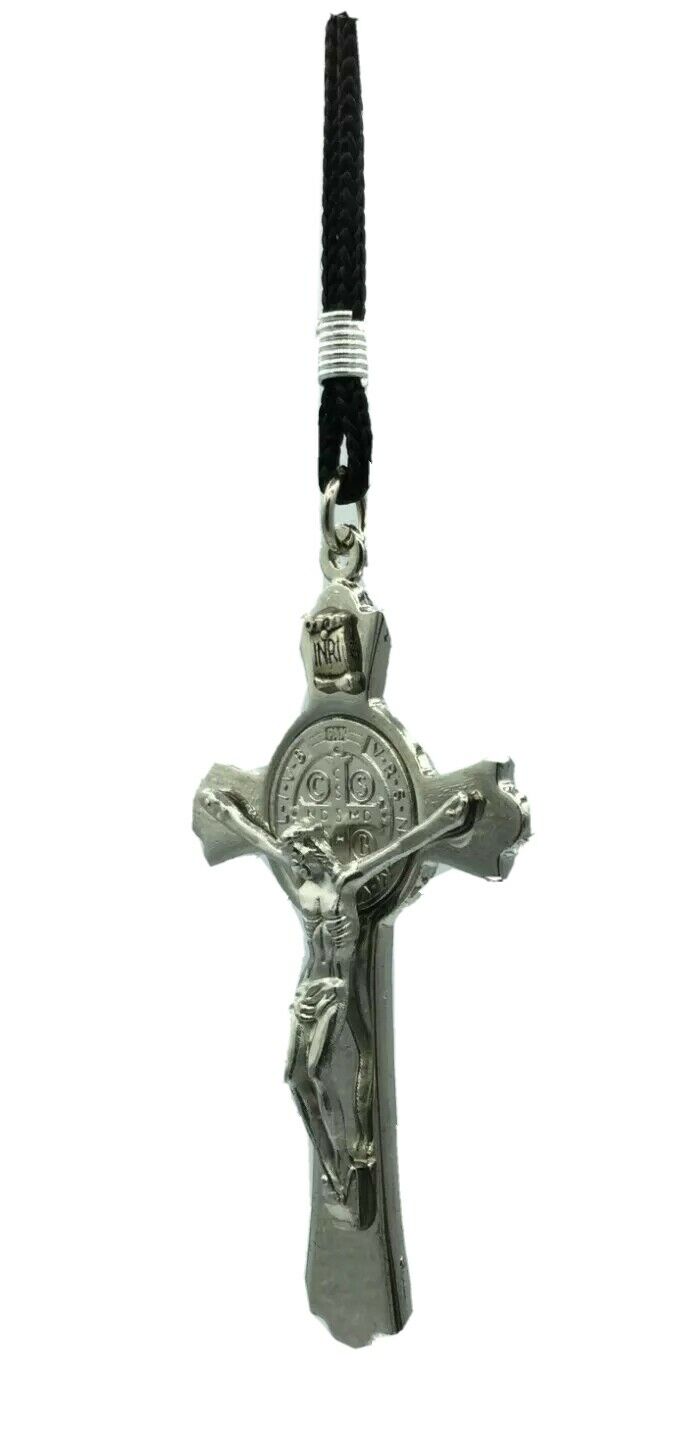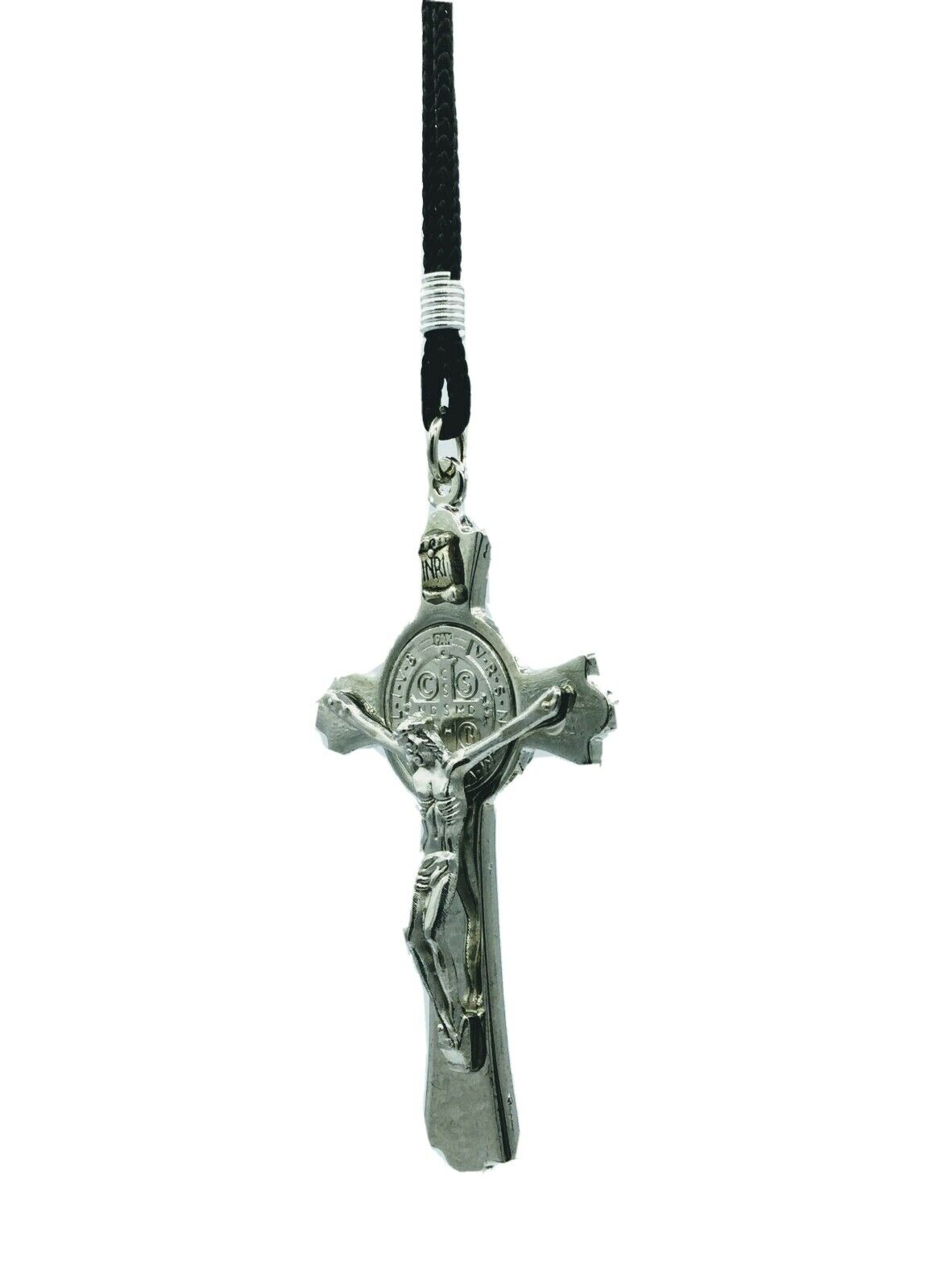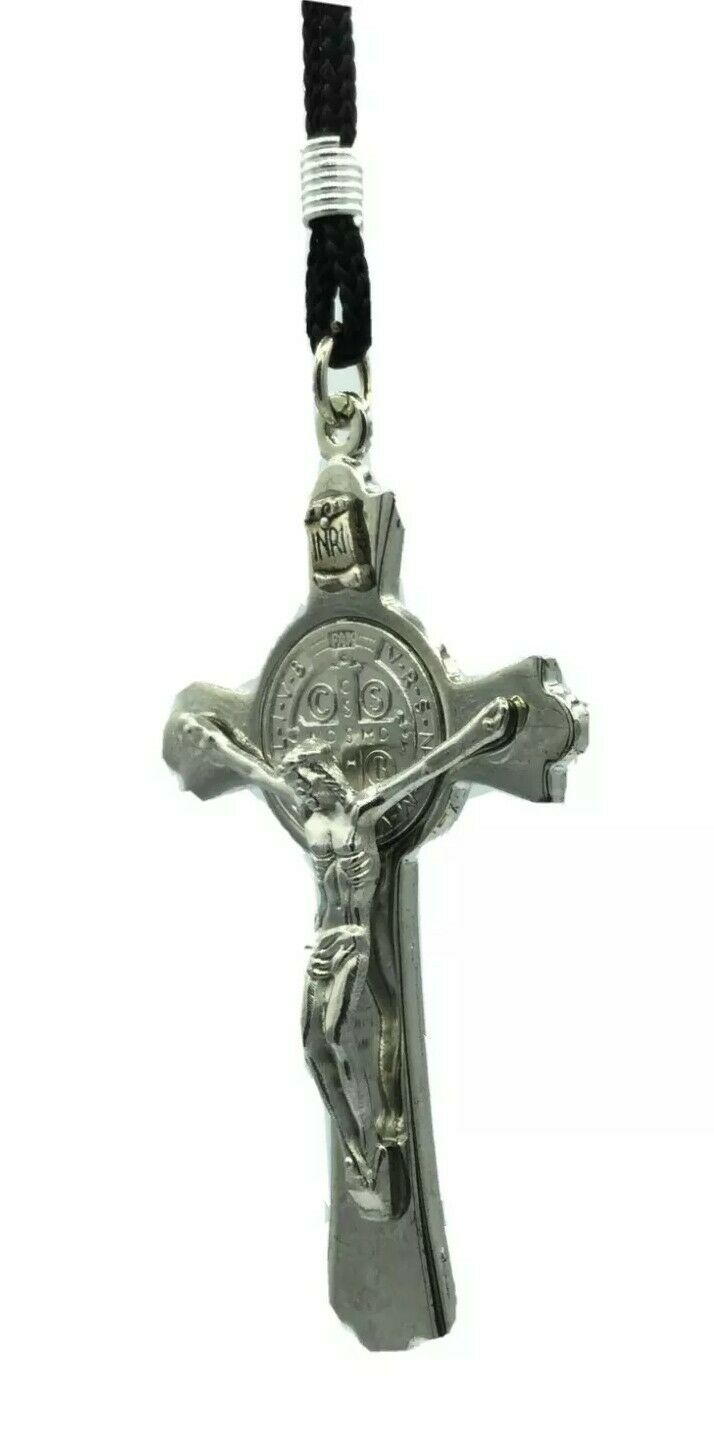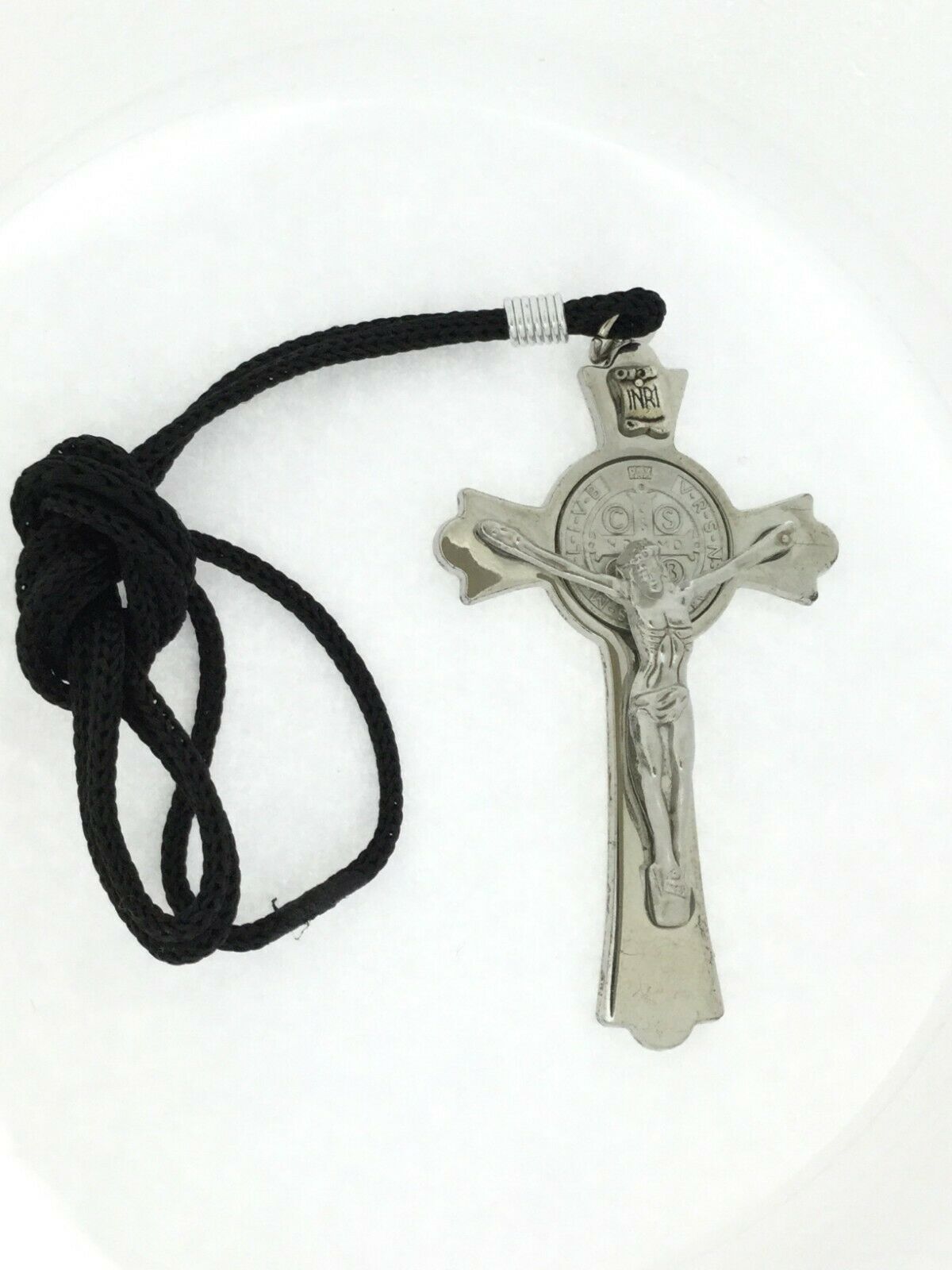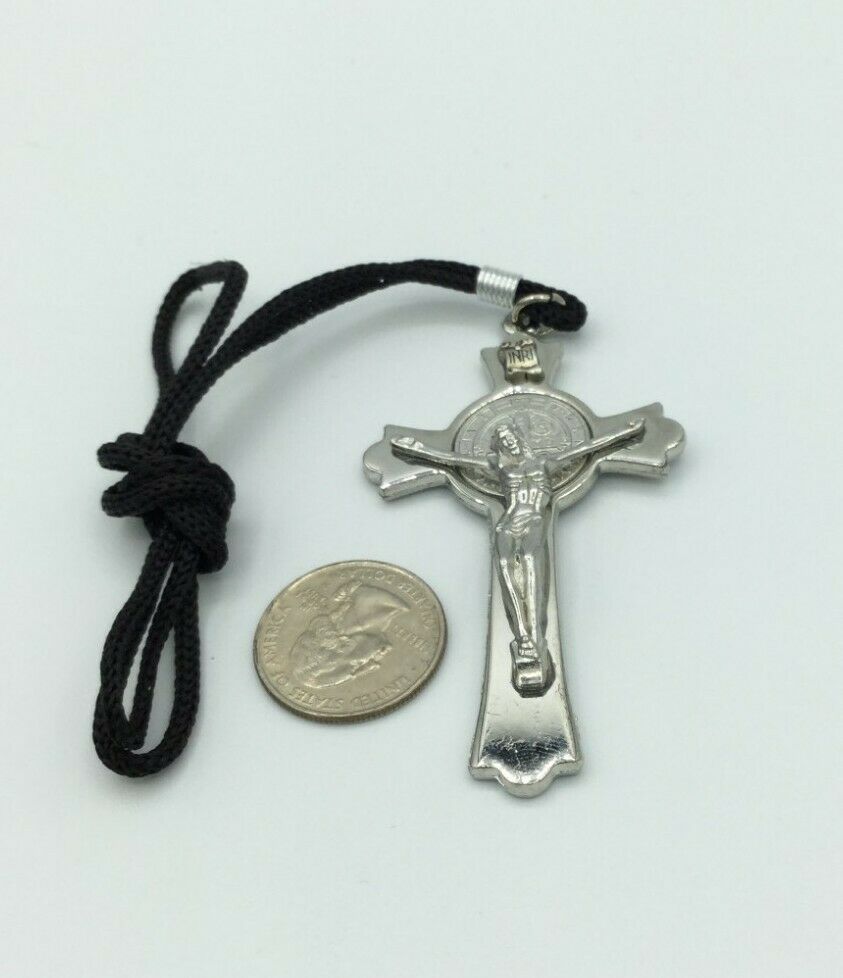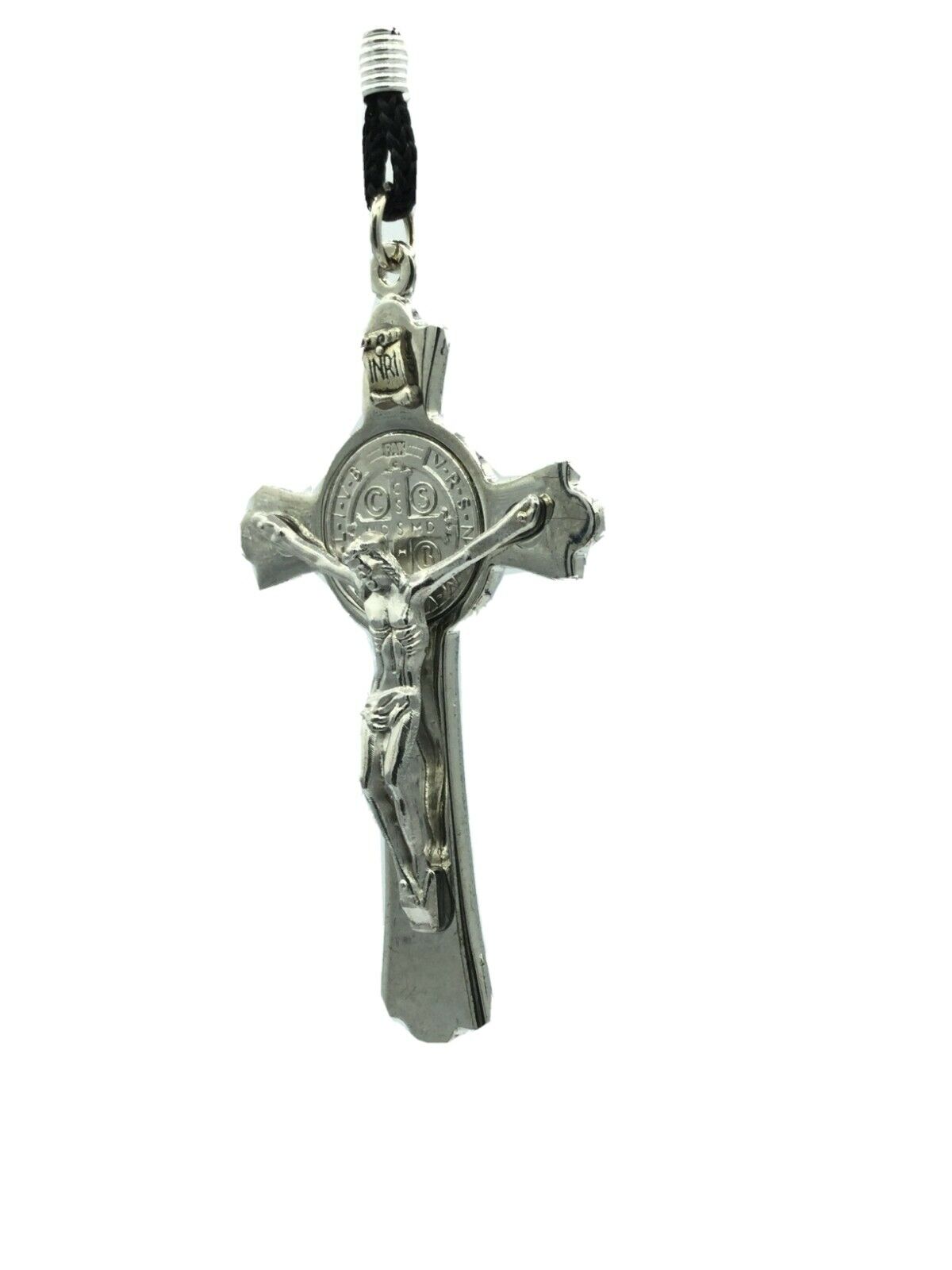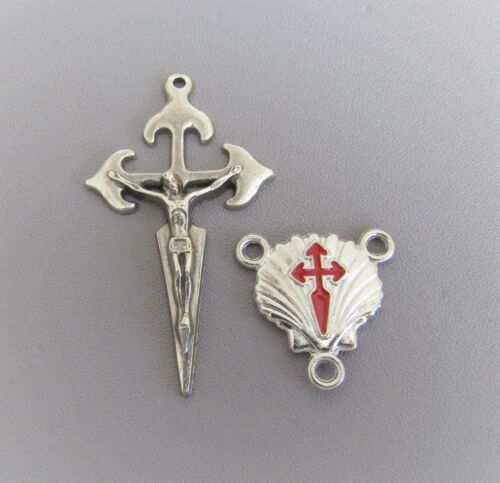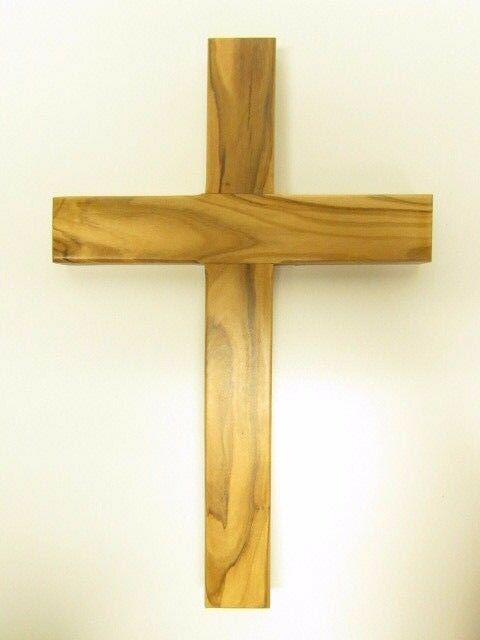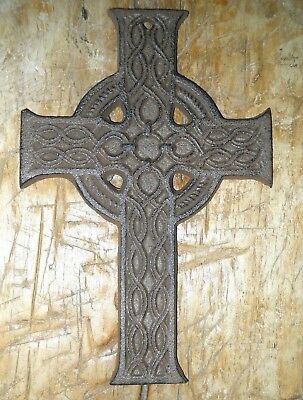-40%
Silv Tone Saint Benedict Budded Crucifix Pendant for Men Women,3 Inch San Benito
$ 7.39
- Description
- Size Guide
Description
SILVER Tone Saint Benedict Budded Crucifix Pendant for Men Women, 3 Inch San Benito.Condition is New.
Shipped for
FREE
with USPS First Class.
FREE PRAYER CARDS
SILVER Tone Saint Benedict Budded Crucifix Pendant for Men Women, 3 Inch
Silver Tone Saint Benedict Budded Crucifix Pendant for Men Women, 3 In
Silver Tone - 3 Inch (H)
Chain - Black Cord - 19 Inch
Features Saint Benedict of Nursia - patron of monks, kidney disease, dying people, against evil
The Crucifix is a cross with the Body of Christ, an ancient symbol used within the Catholic, Eastern Orthodox, Anglican and Lutheran church
SAINT
BENEDICT MEDAL
The Saint Benedict Medal is a Christian sacramental medal containing symbols and text related to the life of Saint Benedict of Nursia, used by Roman Catholics, as well as Anglicans, Lutherans, Methodists and the Western Orthodox, in the Benedictine Christian tradition, especially votarists and oblates.
The medal is one of the oldest and most honored medals used by Christians and due to the belief in its power against evil is also known as the "devil-chasing medal". As early as the 11th century, it may have initially had the form of Saint Benedict's cross, and was used by pope Leo IX.
The reverse side of the medal carries the Vade retro satana ("Begone, Satan!") formula which has been used by Christians to ward off evil since the 15th century. Sometimes carried as part of the rosary, it is also found individually.
In widespread use after its formal approval by Pope Benedict XIV in the 18th century, the medal is used by Roman Catholics to ward off spiritual and physical dangers, especially those related to evil, poison, and temptation.
On the front of the medal is Saint Benedict holding a cross in his right hand, the object of his devotion, and in the left his rule for monasteries.
On the back is a poisoned cup, in reference to the legend of Benedict, which explains that hostile monks attempted to poison him: the cup containing poisoned wine shattered when the saint made the sign of the cross over it (and a raven carried away a poisoned loaf of bread).
Above the cup are the words Crux sancti patris Benedicti ("The Cross of [our] Holy Father Benedict").
Surrounding the figure of Saint Benedict are the words Eius in obitu nostro praesentia muniamur! ("May we be strengthened by his presence in the hour of our death"), since he was always regarded by the Benedictines as the patron of a happy death.
On the back is a cross, containing the letters C S S M L - N D S M D, initials of the words Crux sacra sit mihi lux! Non [Nunquam?] draco sit mihi dux! ("May the holy cross be my light! May the dragon never be my overlord!").
The large C S P B stand for Crux Sancti Patris Benedicti ("The Cross of [our] Holy Father Benedict").
Surrounding the back of the medal are the letters V R S N S M V - S M Q L I V B, in reference to Vade retro satana: Vade retro Satana! Nunquam suade mihi vana! Sunt mala quae libas. Ipse venena bibas! ("Begone Satan! Never tempt me with your vanities! What you offer me is evil. Drink the poison yourself!") and finally, located at the top is the word PAX which means "peace".
The Saint Benedict Medal is effective for:
to destroy witchcraft and all other diabolical and haunting influences;
to impart protection to persons tempted, deluded, or tormented by evil spirits;
to obtain the conversion of sinners to the Catholic Church, especially when they are in danger of death;
to serve as an armour against temptation;
